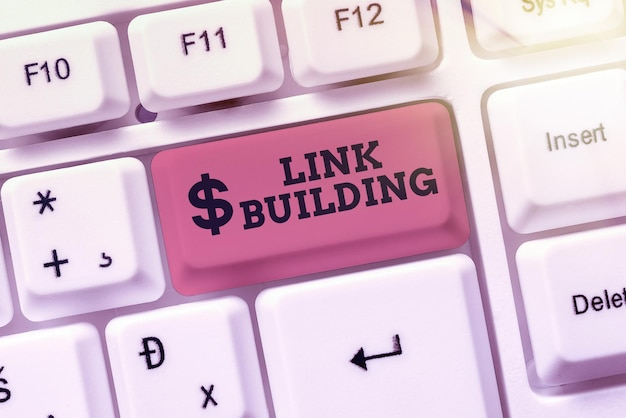
The global neuroscience market reached a valuation of USD 35.9 billion in 2024 and is projected to grow to USD 48.0 billion by 2033, reflecting a steady CAGR of 3.1% during 2025–2033. This growth is fueled by increasing neurological disorder prevalence, technological advancements in neuroimaging, and rising investments in research and development. Additionally, growing awareness of mental health issues, expanding applications in neuroinformatics and neuroprosthetics, and supportive government policies are contributing to market expansion.
Study Assumption Years
- Base Year: 2024
- Historical Years: 2019–2024
- Forecast Years: 2025–2033
Neuroscience Market Key Takeaways
- Market Size & Growth: Valued at USD 35.9 billion in 2024, the market is expected to reach USD 48.0 billion by 2033, growing at a CAGR of 3.1% during the forecast period.
- Technological Advancements: Innovations in neuroimaging tools and integration of AI and machine learning are enhancing diagnostics and personalized treatments.
- Rising Neurological Disorders: An increasing prevalence of conditions like epilepsy and Alzheimer’s disease is driving demand for neuroscience research and therapies.
- Government Support: Supportive policies and funding initiatives are bolstering research and development activities in neuroscience.
- Aging Population: The growing elderly demographic is contributing to higher incidences of neurological ailments, necessitating advanced treatment options.
Market Growth Factors
- Role of AI and Machine Learning in Neuroscience Or Brain Function and Structure Analysis
The neuroscience market is booming, thanks to some amazing technological advancements in neuroimaging and the rise of artificial intelligence (AI). Tools like functional magnetic resonance imaging (fMRI), positron emission tomography (PET), and cutting-edge electroencephalography (EEG) have really stepped up our ability to dive deep into how the brain works and looks. These innovations are giving researchers incredible insights into neural activity, allowing them to investigate complex neurological processes and pinpoint biomarkers for various brain disorders. Plus, with AI and machine learning in the mix, analyzing massive amounts of neurological data has become much easier, leading to more precise diagnostics and tailored treatment plans. This tech progress is not just enhancing patient outcomes; it’s also broadening the scope of neuroscience in clinical environments.
- Aging Population and Increased Neurodegenerative Disorders
The rise in neurological disorders like Alzheimer’s, Parkinson’s, epilepsy, and depression is a major factor driving the neuroscience market. As our global population gets older, we’re seeing more cases of neurodegenerative diseases, which in turn boosts the demand for effective diagnostics, treatments, and preventive measures. There’s also a growing public awareness around mental health issues, which underscores the importance of neuroscience research. Both governments and private organizations are pouring resources into this field to create better therapeutic options. This heightened focus on tackling neurological disorders is fueling the need for advanced neuroscience tools and technologies, prompting pharmaceutical companies to invest in developing neurotherapeutics.
- Government Support Driving Neuroscience Advancements for Brain Research
Government support and collaborative research efforts are vital for the growth of the neuroscience market. With backing from government policies and funding, extensive research and development in neuroscience are thriving. The teamwork among neuroscientists, engineers, computer scientists, and clinicians has resulted in groundbreaking tools and methods for exploring the brain. Major projects like the Human Brain Project and the BRAIN Initiative showcase how collaborative research is enhancing our understanding of the brain. These initiatives draw significant funding from government agencies, private foundations, and industry players, ensuring that researchers have the financial support they need for innovative studies. Such partnerships are crucial for speeding up discoveries and advancements in neuroscience, which in turn fuels market growth.
Request for a sample copy of this report:
https://www.imarcgroup.com/neuroscience-market/requestsample
Market Segmentation
By Component
- Instruments and Consumables: Includes devices and materials used in neuroscience research and diagnostics.
- Software and Services: Comprises analytical tools and support services facilitating neuroscience studies.
By Technology
- Brain Imaging: Techniques like MRI and PET scans used for visualizing brain structures and functions.
- Neuro-Microscopy: Microscopic methods for examining neural tissues at cellular levels.
- Electrophysiology: Studies electrical properties of biological cells and tissues in the nervous system.
- Neuroproteomic Analysis: Analyzes protein expressions and functions in neural contexts.
- Animal Behaviour Analysis: Observes and interprets behavioral patterns in animal models for neurological studies.
- Others: Encompasses additional emerging technologies in neuroscience research.
By End User
- Hospitals: Healthcare institutions providing diagnostic and therapeutic services for neurological conditions.
- Diagnostic Laboratories: Facilities specializing in testing and analysis of neurological samples.
- Research and Academic Institutes: Organizations conducting neuroscience research and education.
- Others: Includes other entities involved in neuroscience applications.
By Region
-
- North America (United States, Canada)
- Asia Pacific (China, Japan, India, South Korea, Australia, Indonesia, Others)
- Europe (Germany, France, United Kingdom, Italy, Spain, Russia, Others)
- Latin America (Brazil, Mexico, Others)
- Middle East and Africa
Regional Insights
North America leads the neuroscience market, driven by advanced healthcare infrastructure, significant investments in research and development, and the presence of key industry players. The region’s focus on technological innovation and early adoption of advanced diagnostic tools contributes to its dominant position in the global market.
Recent Developments & News
In January 2025, the President of India inaugurated advanced facilities at the National Institute of Mental Health and Neurosciences (NIMHANS) in Bengaluru, including an AI-enabled 3T MRI scanner, enhancing diagnostic capabilities in mental health. Additionally, in December 2024, Medtronic launched the FDA-approved Percept RC neurostimulator in India, designed for deep brain stimulation in patients with movement disorders like Parkinson’s and epilepsy. This innovative device features integrated sensing and a long-lasting rechargeable battery, aiming to provide personalized treatments and improve patient outcomes in neurological care.
Key Players
Alpha Omega Engineering, Biobserve GmbH, Blackrock Neurotech, Doric Lenses Inc., General Electric Company, Kernel, Laserglow Technologies, Mightex Systems, NeuroNexus Technologies Inc., Noldus Information Technology B.V., Plexon Inc., Prizmatix Ltd., Siemens AG, etc.
Ask Analyst for Customization:
https://www.imarcgroup.com/request?type=report&id=5133&flag=C
If you require any specific information that is not covered currently within the scope of the report, we will provide the same as a part of the customization.
About Us:
IMARC Group is a global management consulting firm that helps the world’s most ambitious changemakers to create a lasting impact. The company provides a comprehensive suite of market entry and expansion services. IMARC offerings include a thorough market assessment, feasibility studies, company incorporation assistance, factory setup support, regulatory approvals and licensing navigation, branding, marketing and sales strategies, competitive landscape, and benchmarking analyses, pricing and cost research, and procurement research.
Contact Us:
IMARC Group
134 N 4th St. Brooklyn, NY 11249, USA
Email: sales@imarcgroup.com
Tel No:(D) +91 120 433 0800
United States: +1-631-791-1145






